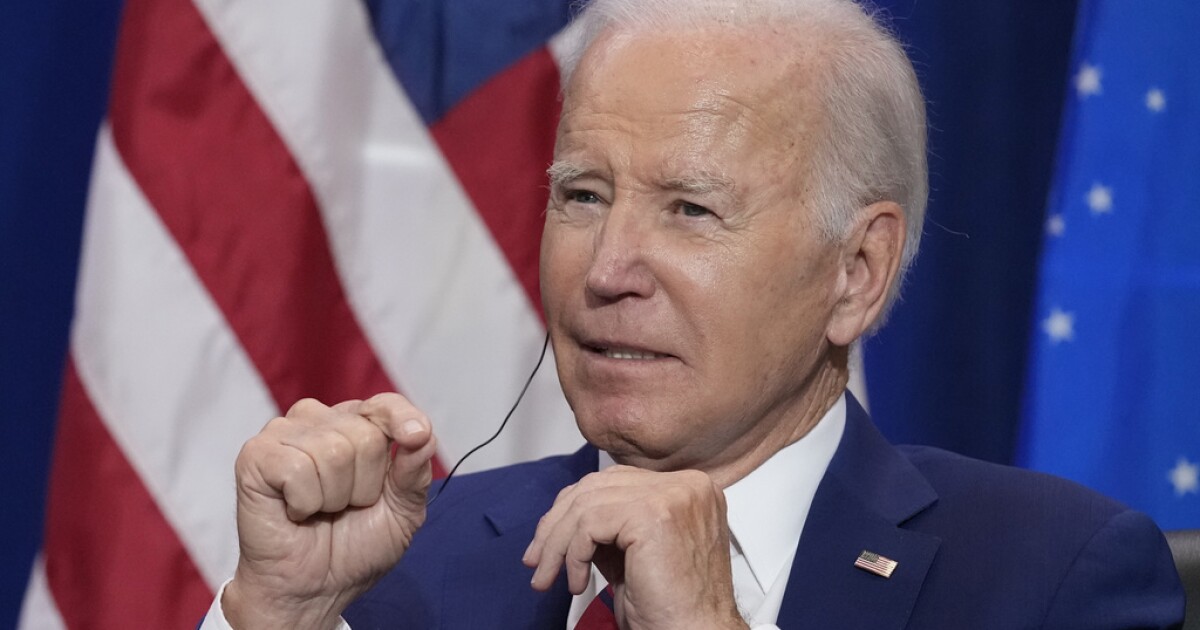

The Biden administration is issuing recommendations for federal agencies to consider the economic effects of greenhouse gas emissions in their budgeting and purchasing decisions, an unprecedented move meant to harness the government’s power of the purse against climate change.
The White House’s guidance released Thursday will be issued to agencies across the board, from agriculture to health, and could affect purchasing decisions in various departments. The recommendations would allow agencies to consider the “social costs of greenhouse gases” generated by goods and projects, how they worsen global warming, and the cost of that to the economy.
HOUSE GOP LEADERS SIGNAL POSSIBLE FUNDING BREAKTHROUGH WITH CONSERVATIVE HOLDOUTS
The order “will help protect people from the growing impacts of the climate crisis and save hardworking families money,” the White House said in a fact sheet.
The guidance would work to inform and justify agencies’ budget proposals, the costs and benefits of certain grants, and international assistance. The guidance also directs agencies to explore penalty processes set in monetary terms to reflect the harm imposed on the environment.
This move is significant, as the federal government spends more than $630 billion every year on goods and services and stands to be the world’s largest purchaser. The Office of Management and Budget estimated that climate-related disasters could increase federal spending by over $100 billion while decreasing annual federal revenue by up to $2 trillion by the end of the century.
The move elicited strong disapproval from Republicans, who raised concerns about how the administration calculates the social cost of carbon.
“The Biden administration continues to use unproven figures to attempt to justify its environmental policies that drive up costs for families, hamstring American employers, and delay job-creating infrastructure projects from ever moving forward,” Sen. Shelley Moore Capito (R-WV), the Senate Environment and Public Works Committee ranking member, wrote in a statement. “Today’s announcement is more of the same devastating, top-down government mandates intended to kill energy jobs and make the United States more reliant on foreign countries.”
Democrats, on the other hand, praised the move as a significant step forward to combat the effects of global warming economically.
CLICK HERE TO READ MORE FROM THE WASHINGTON EXAMINER
“By incorporating the social cost of carbon into procurement calculations, today’s action will result in economies of scale for clean energy and low-emission products, bringing down prices for consumers,” said Sen. Sheldon Whitehouse (D-RI), a leading advocate for implementing a governmentwide social cost of carbon.
Since the Obama administration, the Environmental Protection Agency has used the metric to calculate economic harm caused by carbon dioxide pollution. However, economists have evaluated the metric differently depending on the administration. The Obama administration estimated the cost of carbon to be $42 a ton, while the Trump administration lowered it to less than $5 a ton. Under President Joe Biden, the cost was adjusted for inflation and placed at $51 a ton. But now, officials are working on an update expected to jump to around $190 a ton.





